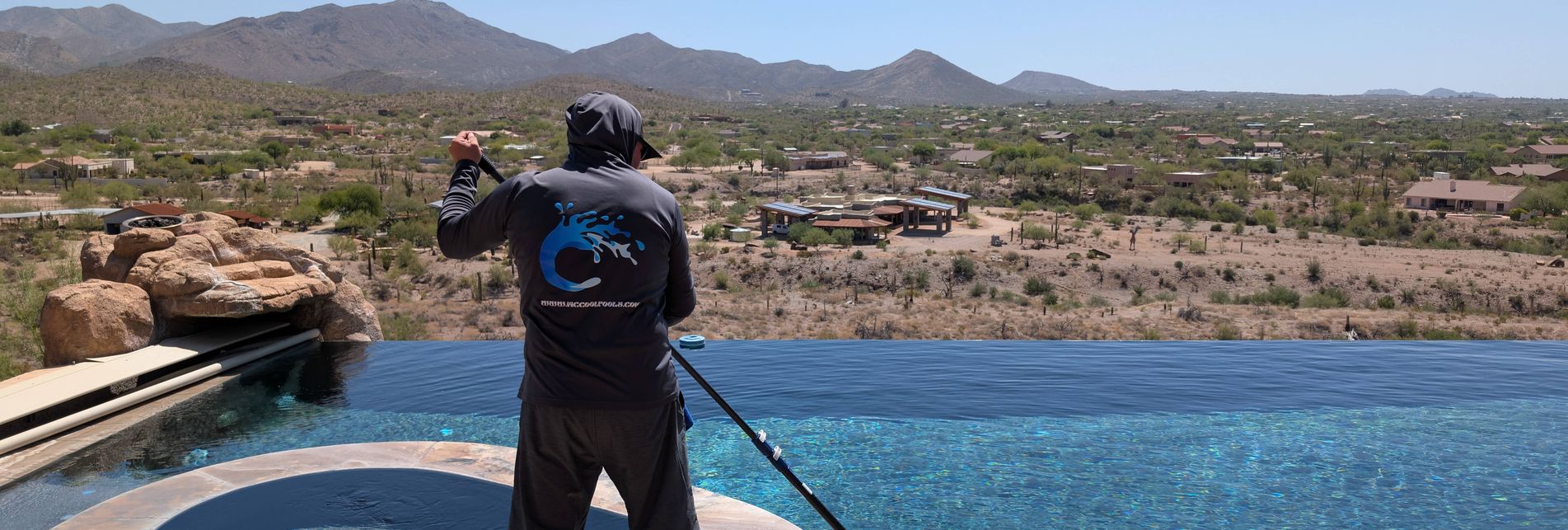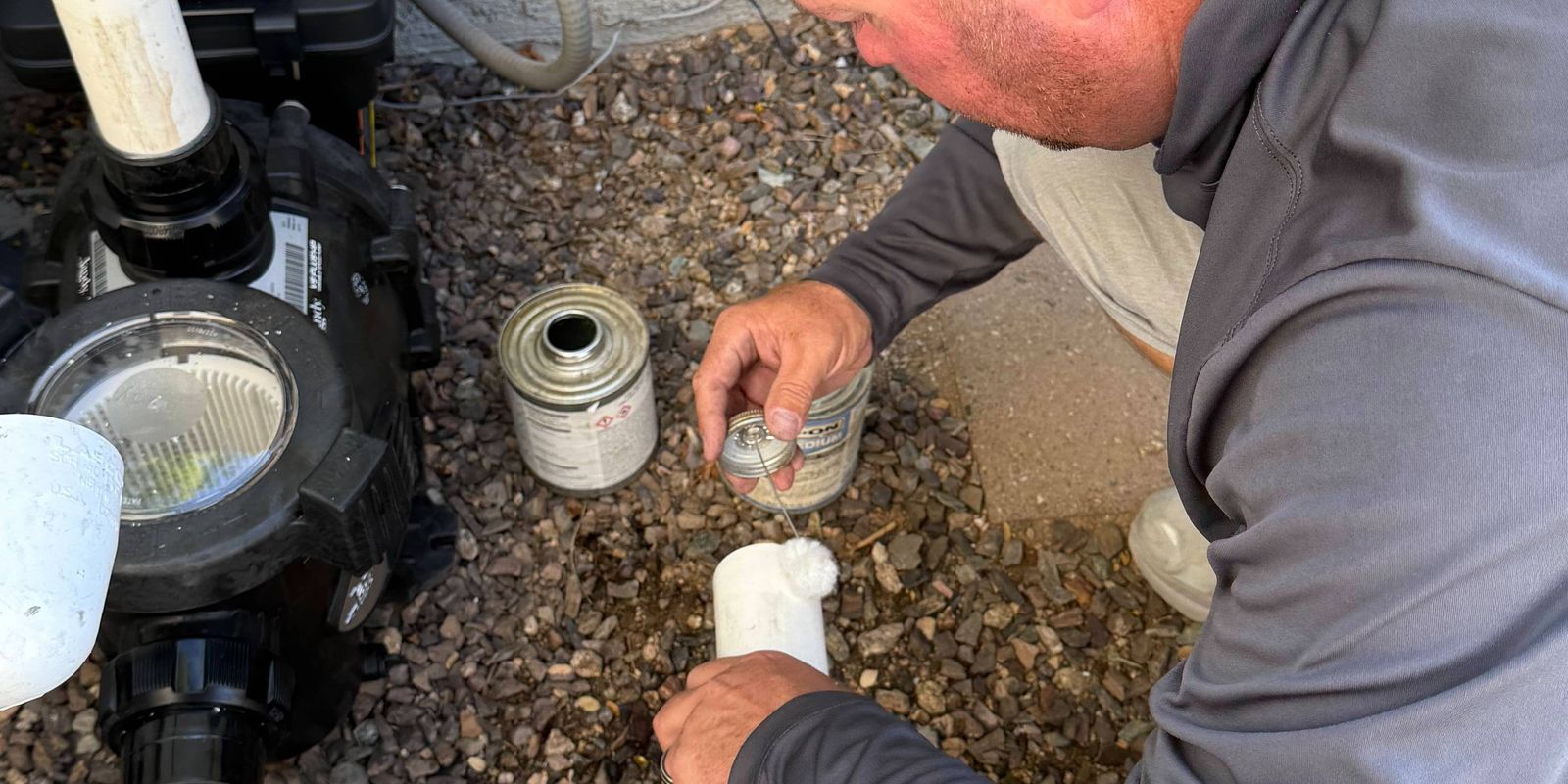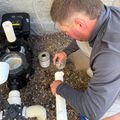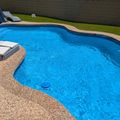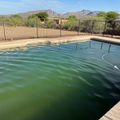Your Pool Pump is Trying to Tell You Something
Your pool pump is the heart of your pool's circulation system, running several hours each day to keep water filtered, sanitized, and crystal clear. Like any hardworking piece of equipment, pumps eventually develop problems—but they rarely fail without warning. Learning to recognize the early signs of pump trouble can save you hundreds or even thousands of dollars in emergency repairs and prevent the cascading problems that occur when circulation stops.
At McCool's Pools, we've diagnosed and repaired thousands of pump problems throughout the Phoenix area over nearly two decades. We've learned that most major pump failures could have been prevented or minimized if homeowners had recognized and addressed the warning signs earlier. Here are the five most important indicators that your pool pump needs professional attention.
1. Unusual Noises During Operation
A properly functioning pool pump runs relatively quietly with just a gentle hum. Any significant change in sound level or the appearance of new noises warrants immediate attention:
Grinding or screeching sounds typically indicate bearing failure. Pool pump motors use sealed bearings that eventually wear out, especially in Arizona's intense heat. When bearings begin to fail, you'll hear grinding, squealing, or screeching sounds that worsen over time. Ignoring these sounds leads to complete motor seizure and much more expensive replacement.
Loud humming without water movement suggests the motor is trying to run but the impeller isn't turning. This often indicates a seized shaft, broken impeller, or capacitor failure. Running a pump in this condition quickly damages the motor windings through overheating.
Rattling or vibration points to loose mounting bolts, worn mounting pads, or internal component damage. Excessive vibration accelerates wear on seals and bearings while the noise indicates something is physically wrong with the pump assembly.
If your pump's sound changes noticeably, don't wait. Contact a professional technician to diagnose the issue before minor problems become major failures.
2. Visible Water Leaks Around the Pump
Pool pumps shouldn't leak water during normal operation. Any moisture around your pump indicates a problem that will worsen over time:
Dripping from the shaft seal is the most common pump leak. The shaft seal prevents water from escaping where the motor shaft enters the pump housing. These seals wear out over time, starting with occasional drips and progressing to steady leaks. Replacing shaft seals promptly prevents water damage to the motor and bearing corrosion.
Leaking from the pump housing suggests cracked pump bodies, worn O-rings, or loose connections. Arizona's temperature extremes can crack plastic pump housings, while improper winterization or freeze events damage internal components.
Pooling water under the equipment pad that seems pump-related requires investigation. Even small leaks waste water, potentially damage your motor, and indicate problems that will worsen.
Our technicians can quickly identify leak sources, determine whether repair or replacement makes better financial sense, and implement proper solutions that prevent recurring problems.
3. Reduced Water Flow and Weak Jets
When water flow from your return jets weakens noticeably, multiple causes are possible—but pump problems are often responsible:
Gradually decreasing flow over weeks or months often indicates an impeller that's becoming clogged with debris or damaged by running dry. Pool pump impellers can also corrode or develop cracks that reduce pumping efficiency. Sometimes the problem is actually a clogged impeller that can be cleaned rather than replaced.
Suddenly reduced flow suggests catastrophic impeller failure, a clogged line, or severe air infiltration. Sudden changes demand immediate attention because they often indicate problems that threaten your entire circulation system.
Adequate flow initially that quickly weakens points to priming problems or air leaks in the suction plumbing. The pump starts properly but can't maintain prime, causing flow to diminish as air enters the system.
Reduced flow isn't just inconvenient—it compromises filtration, chemical distribution, and sanitizer effectiveness. Your pool can't stay clean and clear without proper circulation, making flow problems urgent issues requiring professional diagnosis.
4. Difficulty Priming or Won't Hold Prime
A pool pump should prime quickly when started and maintain that prime during operation. Priming problems indicate air infiltration that threatens pump and motor life:
Repeated loss of prime during operation means air is entering your system somewhere on the suction side. Common culprits include deteriorated pump lid O-rings, cracked pump housings, loose drain plugs, failing valve seals, or underground plumbing leaks. Finding and fixing the air source is critical because running "dry" or with insufficient water flow quickly destroys pump seals and can damage motors.
Inability to achieve initial prime when starting the pump suggests severe suction blockage, significant air leaks, or impeller problems. A pump that won't prime can't circulate water, leaving your pool vulnerable to algae growth and chemical imbalances.
Excessive air bubbles from return jets even when the pump seems primed indicates air infiltration that reduces efficiency and damages equipment. Some air bubbles are normal when first starting, but continuous bubbling signals problems.
Priming issues frustrate homeowners but rarely resolve themselves. Professional diagnosis identifies whether you need simple O-ring replacement, plumbing repairs, or more extensive pump service.
5. Tripping Breakers or Electrical Problems
Electrical issues with pool pumps are both safety hazards and signs of serious equipment problems:
Repeated breaker tripping when starting or during operation indicates the motor is drawing excessive current. This often results from failing motor windings, seized bearings forcing the motor to work harder, or failing capacitors. Running a pump that trips breakers risks fire hazards and causes progressive motor damage.
Burning smell near the pump motor signals overheating from electrical problems, inadequate ventilation, or mechanical binding. This is an emergency situation requiring immediate shutdown and professional service.
Difficulty starting or delayed start suggests capacitor failure. Pool pump motors use start and run capacitors to achieve proper operation, and these electrical components eventually fail, particularly in Arizona's heat.
Never ignore electrical problems with pool equipment. Beyond the safety concerns, electrical issues indicate internal motor damage that worsens rapidly. Our licensed technicians can safely diagnose and repair electrical problems or recommend replacement when necessary.
What to Do When You Notice These Warning Signs
If you've identified any of these warning signs in your pool pump:
Don't ignore the problem. Pump issues never improve on their own and always worsen over time. What might be a $150 seal replacement today could become a $1,200 pump replacement next month.
Document what you're experiencing. Note when the problem occurs, what it sounds or looks like, and any patterns you've noticed. This information helps technicians diagnose issues more quickly.
Avoid DIY repairs unless you're experienced. Modern pool pumps involve electricity near water, require proper reassembly for safe operation, and can be damaged by incorrect repair attempts.
Call a licensed professional. At McCool's Pools, our experienced technicians can quickly diagnose pump problems, explain your options clearly, and implement cost-effective solutions.
Ask about repair vs. replacement. Sometimes older pumps are better replaced with modern, energy-efficient models rather than repaired. An honest technician will help you make the right financial decision.
Prevention is Always Better Than Repair
While pump problems eventually affect every pool system, regular professional maintenance dramatically extends pump life and catches issues early when repairs are simpler and less expensive. During our weekly service visits, we:
- Listen to pump operation and note any sound changes
- Inspect for leaks and moisture around the pump
- Monitor and record water flow and pressure
- Check that the pump primes properly and maintains prime
- Verify electrical connections are secure and safe
- Clear pump and skimmer baskets that could restrict flow
This proactive monitoring catches problems in their earliest stages, often before homeowners even notice anything wrong.
Trust McCool's Pools for Expert Pump Service
With nearly two decades of experience servicing pools throughout the Phoenix area, McCool's Pools has diagnosed and repaired virtually every pump problem imaginable. Our licensed technicians arrive with proper tools, genuine replacement parts, and the expertise to fix problems right the first time. We provide honest assessments of whether repair or replacement makes better financial sense, and we back our work with solid warranties.
Don't wait until your pump fails completely. If you've noticed any of these warning signs, contact McCool's Pools today for professional diagnosis and repair. Your pool's circulation system is too important to trust to guesswork or delay.
